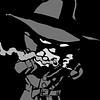Take a photo of a barcode or cover

brettt 's review for:
Miracle Cure
by Harlan Coben
This is both the actual second novel from Harlan Coben and the second one to be re-released as a paperback. Initially published in 1991, Miracle Cure was reprinted in 2011, complete with a suggestion by Coben to first-time readers that they should pick up one of his later books instead.
There's something to that. Even more than his first novel, Play Dead, which was also reprinted some 20 years later, Miracle Cure is a product of its time. It focuses on a clinic whose research offers promising signs of a complete cure for the AIDS virus. Today, as different drug treatments allow persons with HIV to live many years beyond their original diagnosis, both the idea of the AIDS cure being a "breakthrough" and the stigma and mystery surrounding the disease seem a little mystifying themselves.
A secretive clinic may have indeed discovered the cure for the virus, but the three patients whose clinical results seem to prove it works have been viciously murdered. One of the researchers has committed suicide...or has he? Reporter Sara Lowell and her husband, NBA star Michael Silverman, are pulled into the matter when her network does a story on the clinic and Michael himself is diagnosed with HIV (Cure was in fact published before Magic Johnson went public with his own diagnosis in late 1991). Will the killer now target Michael, even if the treatment cures him? Will the powerful forces opposing the clinic's goal go too far in their prejudiced and misguided efforts? What secrets are the clinic staff themselves keeping?
Coben's disclaimer note on the reprint suggests that Miracle Cure is preachy, and boy howdy is he right. Several times we stop the story in order for different characters to offer Important Commentary on the real-world equivalents of some of its own events, such as prejudice against people with HIV, bigotry by those who see the virus's early isolation to gay men and IV drug abusers as a kind of Biblical judgment, and so on. Other than its protagonists, Cure offers a cast of cardboard cutouts, such as the Important Senator With a Secret, the Man-Hungry Hot Babe Who Gets Too Close to the Action for Her Own Good, the Close-Minded Religious Leader Whose Public Piety Covers His Greed and Hatred and the Vicious Killer With an Odd Character Quirk (he's really into clothes and his appearance).
But when he isn't stopping to sermonize, Coben deploys these standard pieces with the style and skill his later readers would grow to appreciate, and he keeps his story humming in between lectures. His focus on family and relationships is already apparent, and he also already had his knack for using them in his narratives. Read in 1991, Miracle Cure probably would have put Coben on the "give him a couple more chances" list. Read twenty years later, it's an interesting look at both the upside and downside of what he would be doing over the course of his career.
Original available here.
There's something to that. Even more than his first novel, Play Dead, which was also reprinted some 20 years later, Miracle Cure is a product of its time. It focuses on a clinic whose research offers promising signs of a complete cure for the AIDS virus. Today, as different drug treatments allow persons with HIV to live many years beyond their original diagnosis, both the idea of the AIDS cure being a "breakthrough" and the stigma and mystery surrounding the disease seem a little mystifying themselves.
A secretive clinic may have indeed discovered the cure for the virus, but the three patients whose clinical results seem to prove it works have been viciously murdered. One of the researchers has committed suicide...or has he? Reporter Sara Lowell and her husband, NBA star Michael Silverman, are pulled into the matter when her network does a story on the clinic and Michael himself is diagnosed with HIV (Cure was in fact published before Magic Johnson went public with his own diagnosis in late 1991). Will the killer now target Michael, even if the treatment cures him? Will the powerful forces opposing the clinic's goal go too far in their prejudiced and misguided efforts? What secrets are the clinic staff themselves keeping?
Coben's disclaimer note on the reprint suggests that Miracle Cure is preachy, and boy howdy is he right. Several times we stop the story in order for different characters to offer Important Commentary on the real-world equivalents of some of its own events, such as prejudice against people with HIV, bigotry by those who see the virus's early isolation to gay men and IV drug abusers as a kind of Biblical judgment, and so on. Other than its protagonists, Cure offers a cast of cardboard cutouts, such as the Important Senator With a Secret, the Man-Hungry Hot Babe Who Gets Too Close to the Action for Her Own Good, the Close-Minded Religious Leader Whose Public Piety Covers His Greed and Hatred and the Vicious Killer With an Odd Character Quirk (he's really into clothes and his appearance).
But when he isn't stopping to sermonize, Coben deploys these standard pieces with the style and skill his later readers would grow to appreciate, and he keeps his story humming in between lectures. His focus on family and relationships is already apparent, and he also already had his knack for using them in his narratives. Read in 1991, Miracle Cure probably would have put Coben on the "give him a couple more chances" list. Read twenty years later, it's an interesting look at both the upside and downside of what he would be doing over the course of his career.
Original available here.